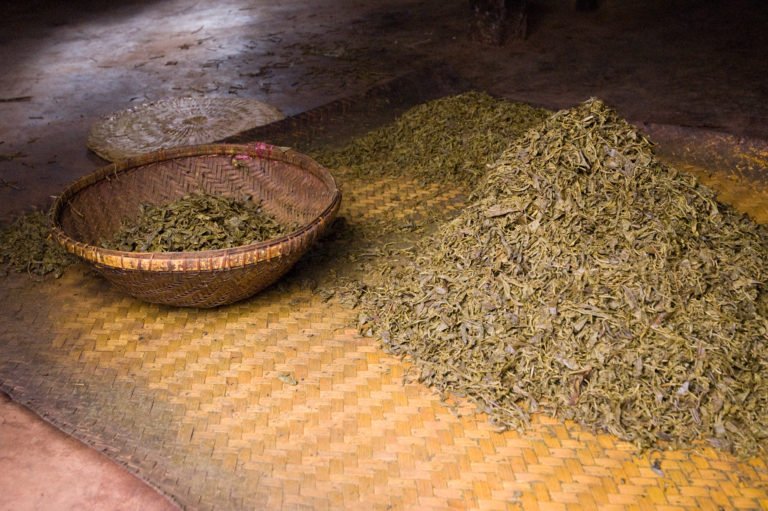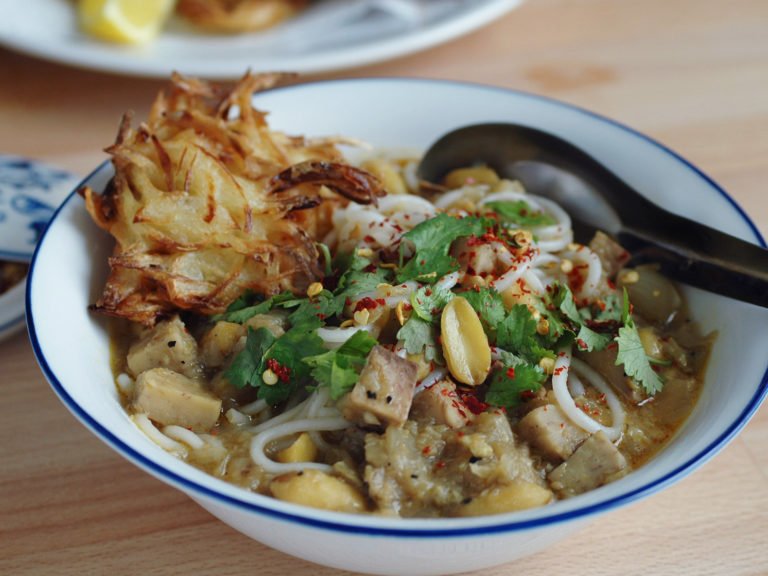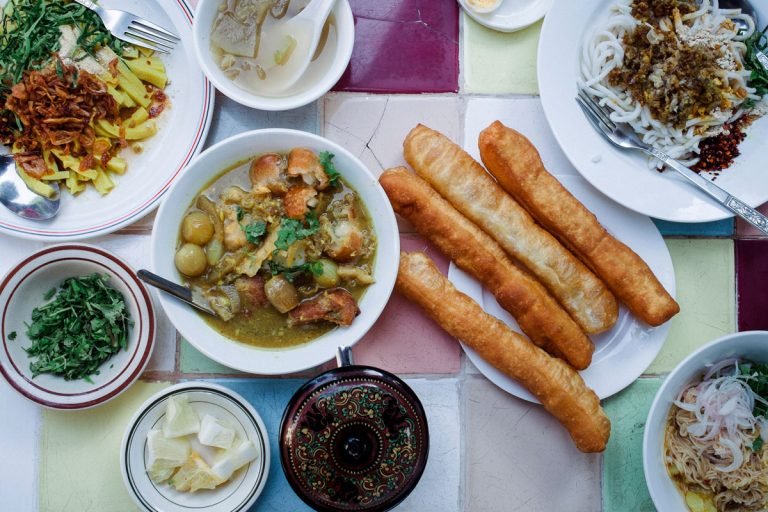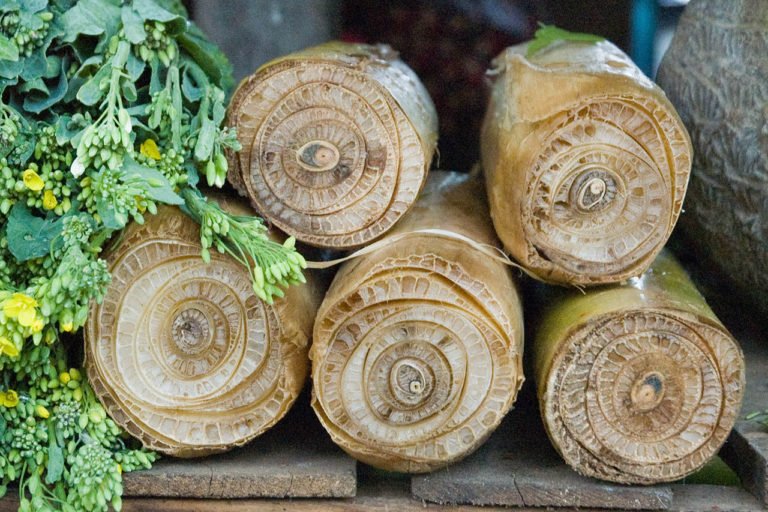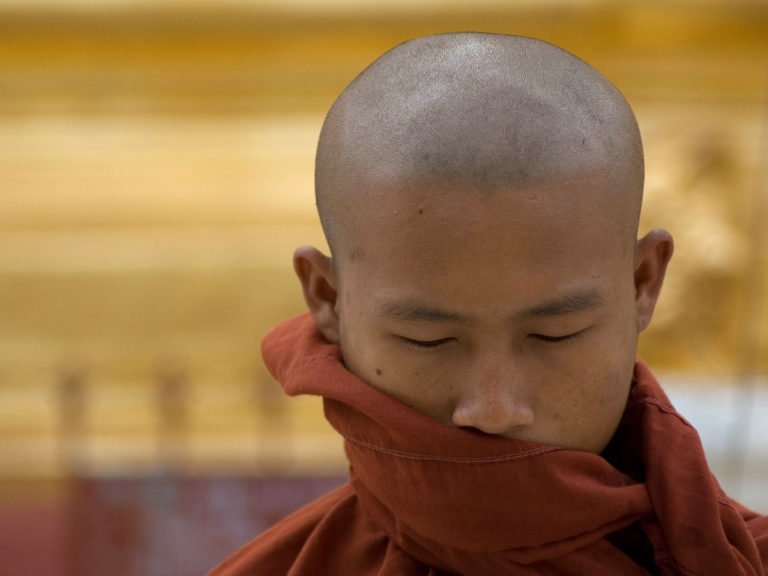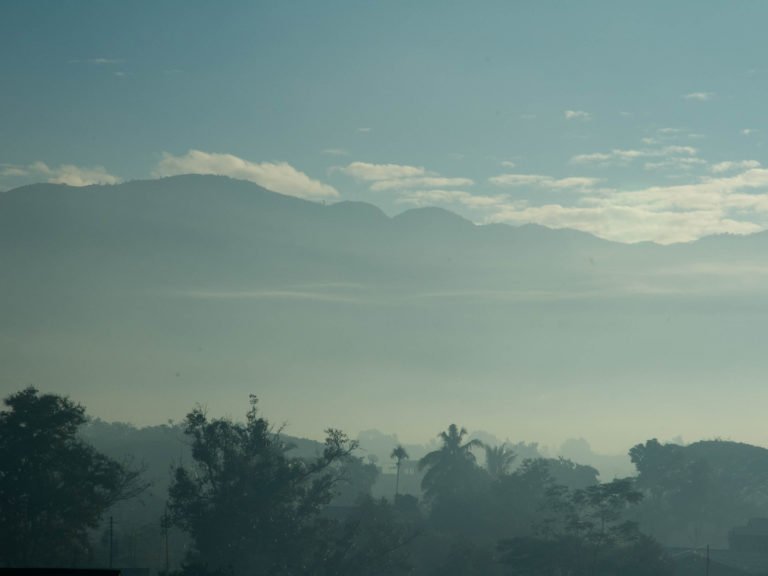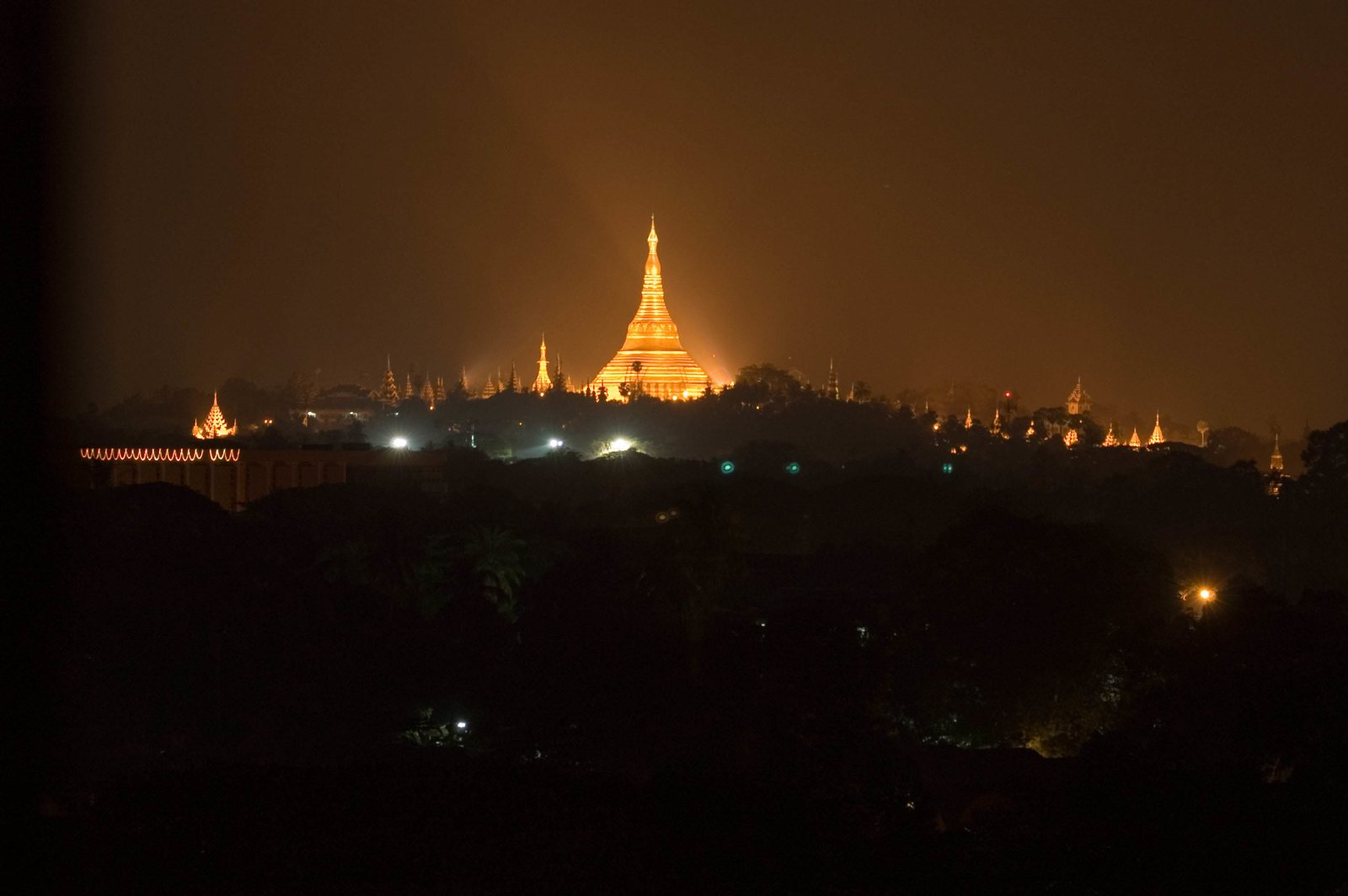
taken from hsa*ba, burmese cookbook
The dazzling golden glow of Shwedagon stupa rising up to illuminate the vast night sky of Rangoon is an unforgettable sight. To me it is a symbol of home.
Visiting Shewdagon pagoda was a favourite family day out, to make offerings of flowers, candles and prayer flags in honour of Buddha. Encased deep within the shrine, there are said to be eight sacred hairs of Buddha. Pilgrims from all over the country come to pay homage, especially on auspicious religious days and at least once in their lifetime.
The main stupa, plated with gold, towers over 100 metres from its platform. The very top is adorned with thousands of diamonds, rubies, sapphires and other gems. Countless smaller shrines and pavilions crowd around the wide-marbled platform that encircles the main stupa. Despite the number of pilgrims and visitors, the pagoda remains a place of serenity and sublime beauty even to this day.
One of my earliest memories is of a visit to Shwedagon at dawn. On the way, we stopped by our favourite Mohingar stall where regular diners hunched over low stools slurping fish noodle soup and catching up on daily gossip. The stall owner knew our family well. Considered loyal customers, we were offered a second helping of soup. With satisfied stomachs, we returned to the car, turned towards Singuttara Hill and parked at the eastern gate.
We removed our shoes before beginning the long climb up the covered stairway lined with numerous stalls. After walking past the first few stalls we overtook a couple who were waiting for the remainder of their family to join them. ‘Come and rest a bit. Leave your shoes here. We have fresh flowers,’ voices from other stall owners tried to compete for customers as more people ascended behind us. My father, however, favoured a particular stall where the owner with a betel-stained smile greeted us. For a small fee we left our shoes in his care.
As for the flowers and other offerings, my mother led us nearly all the way up the staircase to a small stall. The owner was a woman with friendly eyes and two enthusiastic young helpers. My mother paused to chat to the woman and gave advice for her chesty cough and invited the woman to visit her health clinic. The woman offered my mother two large bunches of flowers, a handful of candles and a packet of gold leaf in gratitude but my mother insisted on paying her. My sister and I carried a bunch of flowers each and ran up the remaining steps, trying to beat our two older brothers to the top.
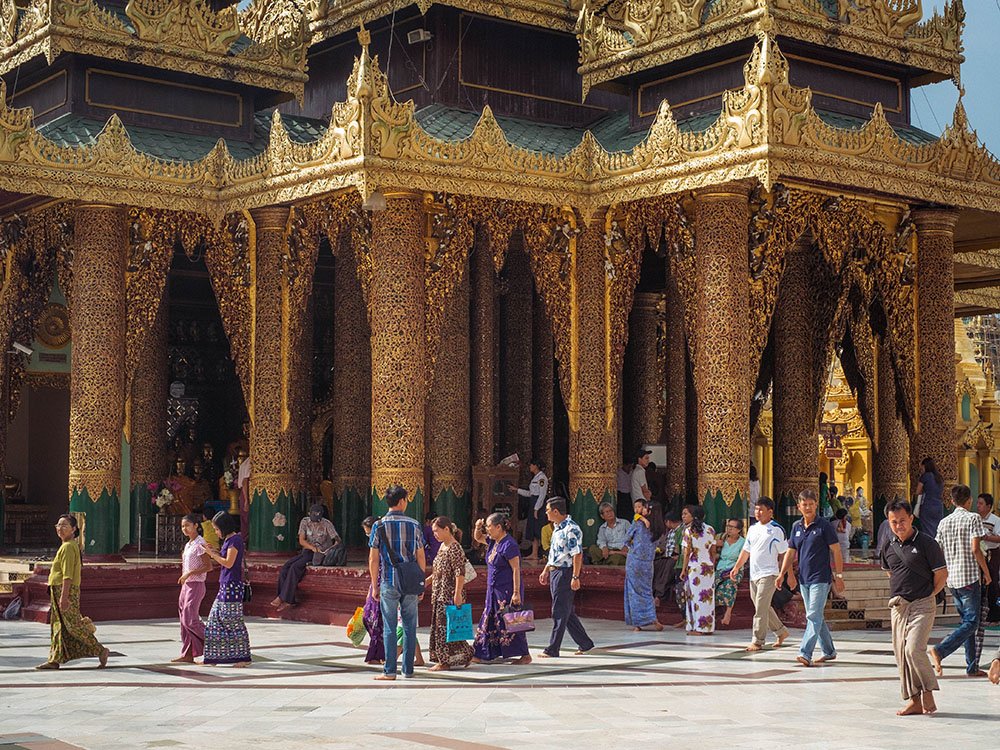
The air became thick with the heady smell of smouldering incense and the sweet scent of flowers as we reached the top of the stairs. On the main platform, we began the traditional route, walking clockwise around the stupa, and stopping at the pavilions to make offerings and donations. Occasionally we heard announcements on the tannoy or caught the soft chant of prayers from the monks. I followed my two older brothers and sister to look for our planetary posts while my parents sat in meditation.
In Burma the day of the week a person is born is of significance, as this will not only determine the first letter of their name, but also their planetary post which influences many aspects of daily life – from the selection of partners to days of the week when it is unlucky to cut your hair! There is a rhyme which we sang in the playground along the lines that a girl born on Friday should not marry a boy born on Monday. I never discovered why.
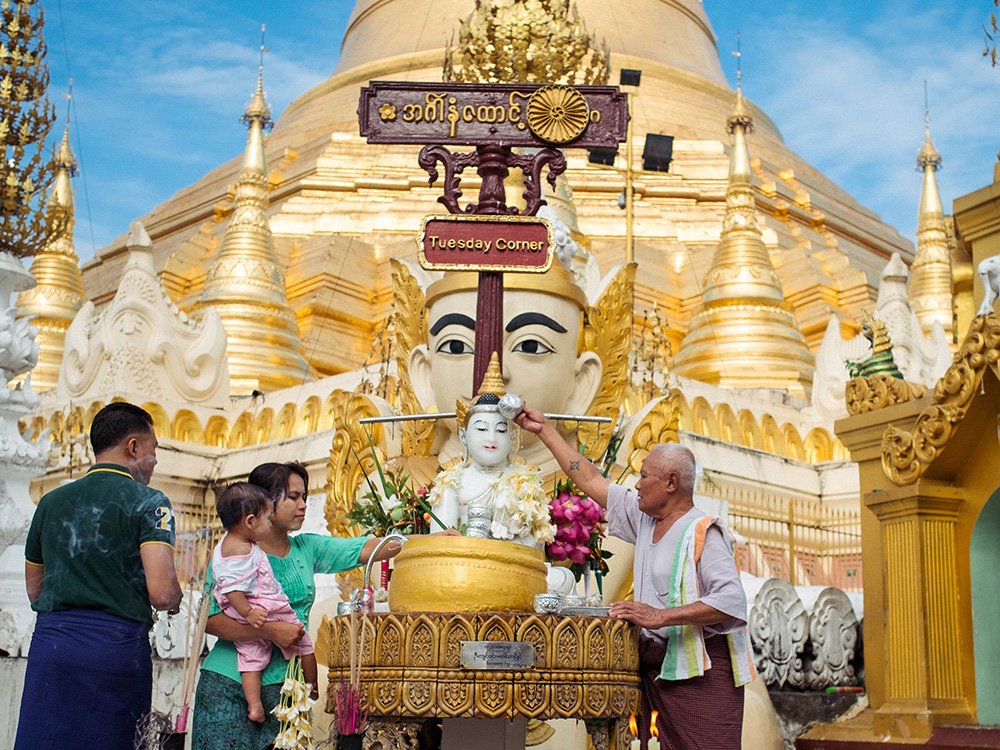
There are eight planetary posts as Wednesday is split into morning and afternoon. The posts are positioned at cardinal points around the pagoda. At the southwest corner, we found a water seller, a slender young man tanned by the harsh sun. He gave me half a coconut shell to scoop up water from his container. With a shell-cup full of water, I squeezed through the crowd to my planetary post and poured water over the Naga, a mythical serpent which represents Saturday. I heard murmuring voices behind me saying, ‘Let my head be as cool as this holy water. Let my worries be washed away with this clean water.’
We continued to walk around the pagoda, visiting each of our family’s posts. By the time we had completed a full circuit, the sun had climbed high and the marble floor was already warm under our feet. Eventually we found our mother and father waiting for us at the eastern staircase. It was time to return home and we descended to the gate, sheltered from the increasing heat of the day.

